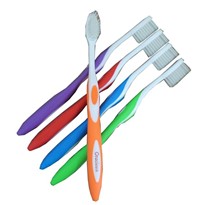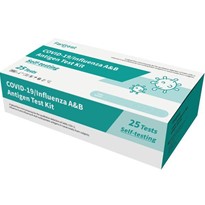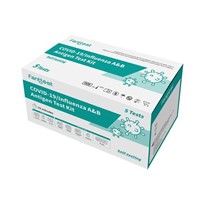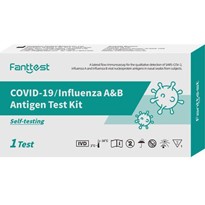What is influenza?
Influenza (also called "flu" or "seasonal Influenza") is a contagious respiratory illness caused by Influenza A, B and C viruses. These viruses can cause mild to severe illness, and at times can lead to death. Most at risk are children under age 2, adults over the age of 65, and people of any age with certain medical conditions.
Signs and symptoms
Common signs and symptoms of human respiratory flu include high fever, cough, sore throat, stuffy/runny nose, body aches, headaches, chills, fatigue, diarrhea and vomiting. Influenza can lead to secondary illnesses, such as ear and sinus infections and possibly pneumonia. Influenza may worsen underlying medical conditions.
Spread of Influenza among people
Influenza viruses are found in the mucous membranes of infected people. When an infected person coughs or sneezes, small droplets of infected liquid are spread into the air and onto surfaces, as far as two metres away. A single sneeze can release 40,000 droplets.
People become infected through breathing the droplets or by touching a contaminated surface and transferring the droplets from their hands to their nose, mouth, or eyes. Infected people may be able to infect others beginning one to four days before symptoms develop. This raises concern because the virus can be passed to others before the carrier is aware they are infected.
Protecting yourself and others
What individuals can do
A yearly seasonal flu vaccine is the first and most important step in protecting against seasonal Influenza. The Influenza viruses can live two hours or longer on hard surfaces. Frequent handwashing as well as hard surface cleaning and disinfection will reduce the chance of contracting and spreading these viruses.
Steps to help decrease the chance of coming in contact with or spreading Influenza viruses:
- Wash hands frequently with soap and water and use instant hand sanitiser, especially after sneezing or coughing
- Cover nose and mouth with your arm or a tissue when coughing or sneezing. Immediately discard tissue after use
- Try not to touch surfaces contaminated with flu virus
- Avoid touching your eyes, mouth or nose
- Avoid close contact with infected people
- If ill, stay home from work or school and limit contact with others
What facilities can do
Businesses, schools, healthcare and other institutions within our communities can take an active role in preventing the spread of Influenza viruses.
Implement special environmental cleaning procedures as part of routine cleaning
- Follow hand hygiene guidelines, and thoroughly wash hands with soap and water
- Ensure that commonly touched surfaces (door knobs, light switches, vending machines, desktops, etc.) are frequently disinfected
- Increase frequency of cleaning and disinfection in high traffic areas
- Use a registered Hospital Grade Disinfectant with an approved claim for Influenza A
- Make disinfectant wipes available in public areas












-160x160-state_article-rel-cat.png)














